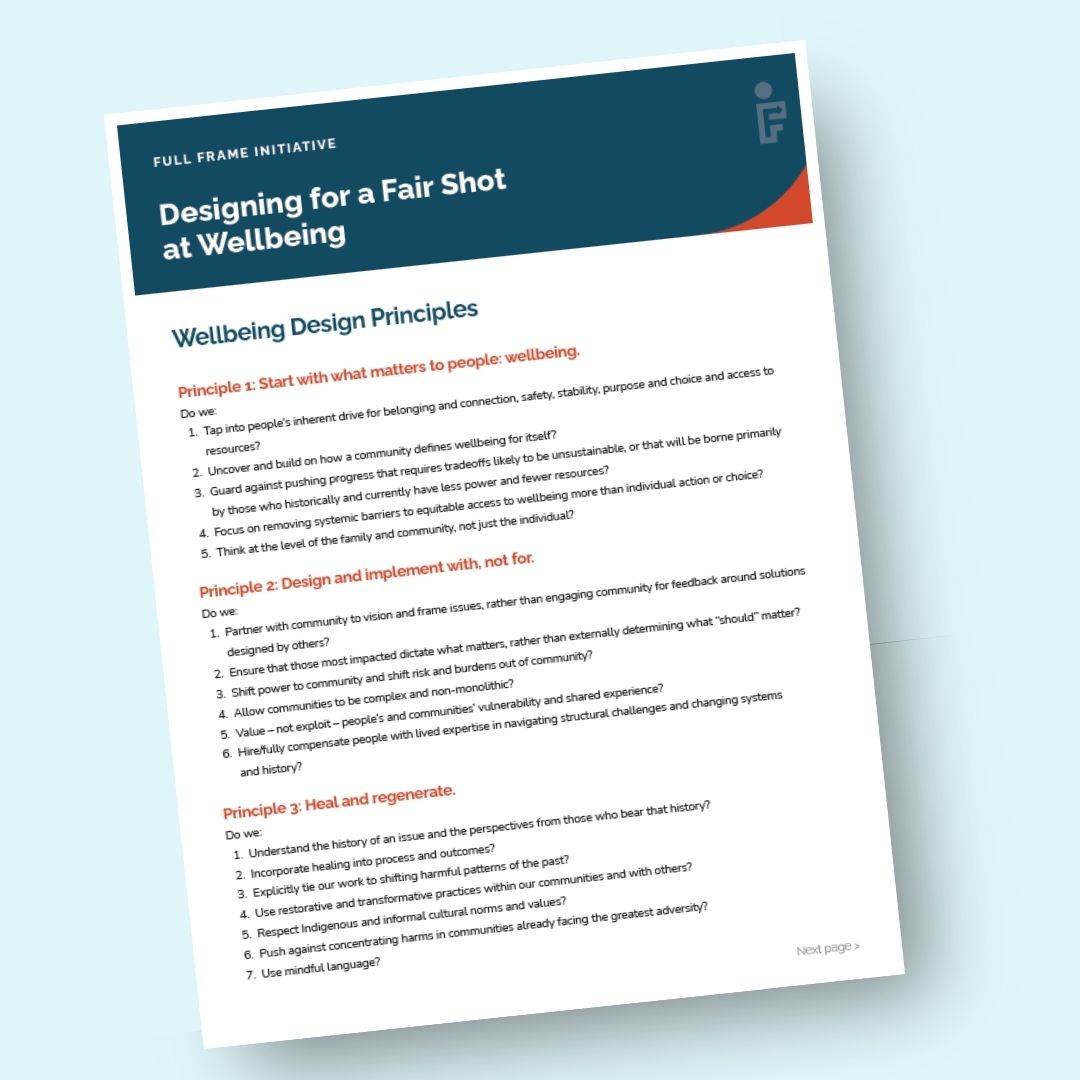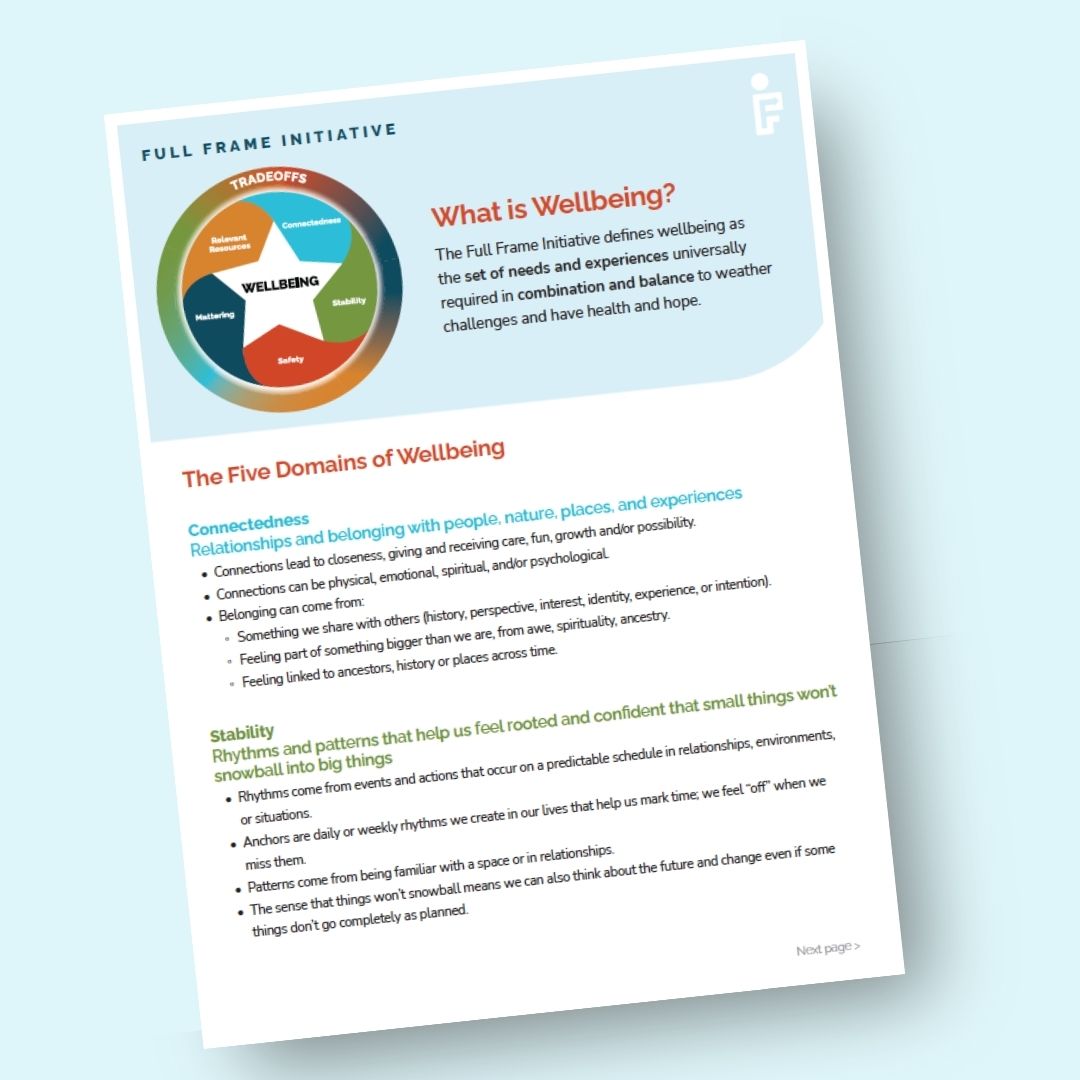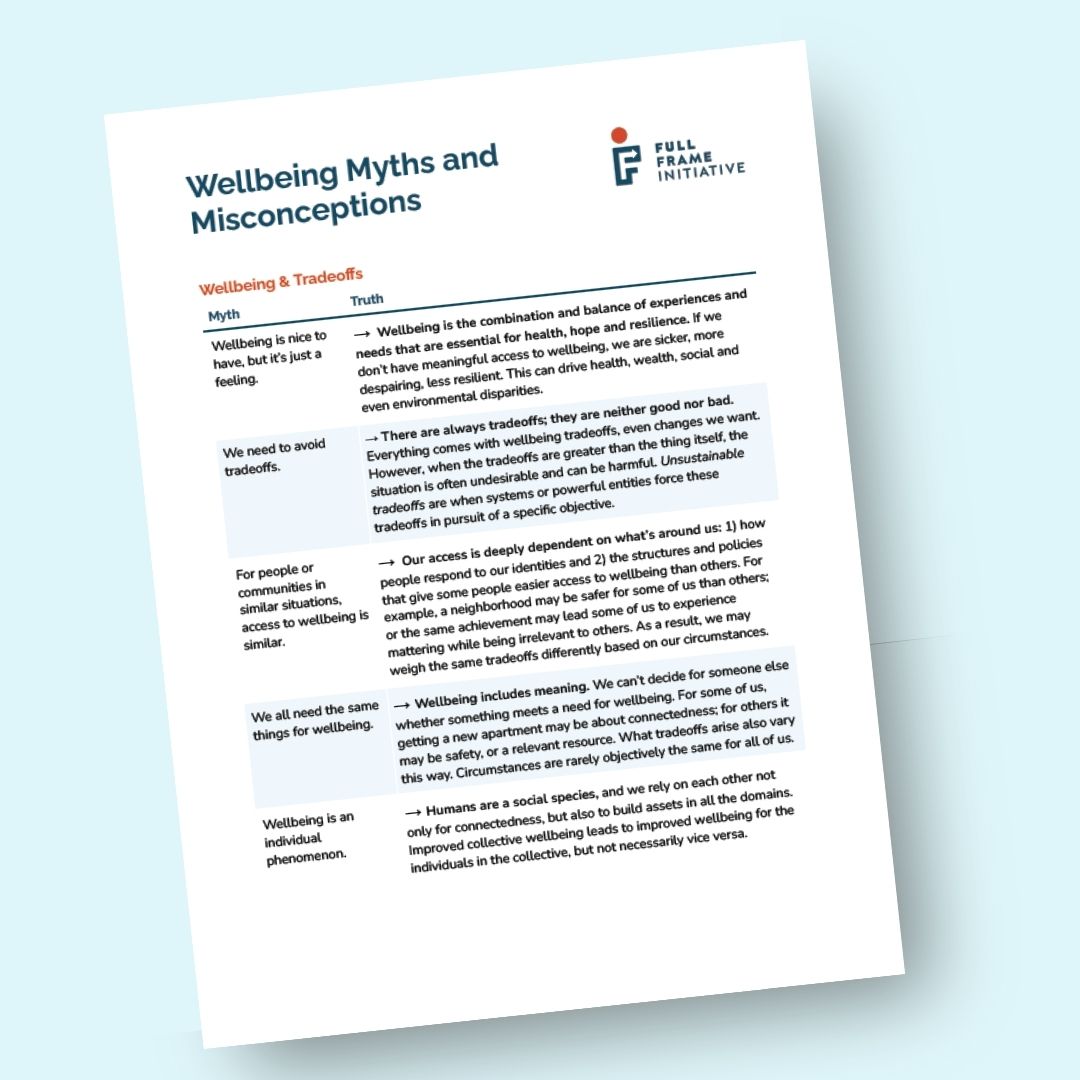
The COVID-19 pandemic forced many people to self-isolate and quarantine and challenged everyone’s assumptions about how the world works. The authors of this resource offer guidance for people in COVID-19 lockdown experiences on how to retain wellbeing in this kind of situation, based on their own lived experience expertise of incarceration. This resource is an example of what it looks like to centering community by leaning into the expertise of people with lived experience.

How can we ensure that everyone has a fair shot at wellbeing? Utilize our Wellbeing Design Principles to turn the wellbeing framework into action.

The Full Frame Initiative defines wellbeing as the set of needs and experiences universally required in combination and balance to weather challenges and have health and hope.

Wellbeing isn't just a "nice to have." In this resource, we break down the myths and misconceptions about wellbeing and tradeoffs.